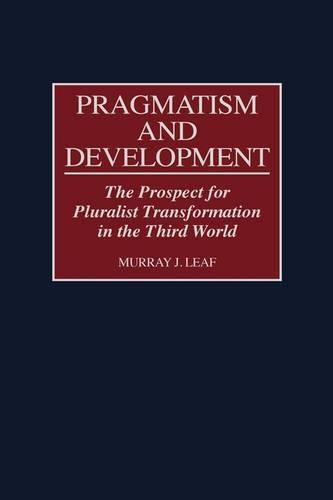
Pragmatism and Development: The Prospect for Pluralist Transformation in the Third World
(Hardback)
Publishing Details
Pragmatism and Development: The Prospect for Pluralist Transformation in the Third World
By (Author) Murray Leaf
Bloomsbury Publishing PLC
Praeger Publishers Inc
30th July 1998
United States
Classifications
Tertiary Education
Non Fiction
Industry and industrial studies
International relations
338.091724
Physical Properties
Hardback
256
Description
While European reconstruction after World War II followed the pluralistic Marshall Plan that grounded social order in individual interests and interdependence, the roots of dirigiste planning in South Asia, as in the rest of the Third World, lie mainly in the line of deterministic theories represented by Positivism and Marxism. Despite a national commitment to dirigiste planning, however, India retains substantial interstitial pluralismpluralism within an overall centralized systemthat varies from state to state. This variation is directly reflected in interstate variations in development success. Pragmatic theory, such as that underlying the Marshall Plan, is committed to seeing indigenous thought in its own terms and provides a far more comprehensive analysis of Indian social realities. This study establishes the continuing viability and practicality of the pluralist alternative and identifies what must be done to convert a centralized system to a pluralistic one.
Reviews
Pragmatism and Development provides a tight and informative empirical study of canal systems...Overall, the book is written with a clear and accessible style that will make it appropriate for specialist researches and for graduate and advanced undergraduate students.-The Journal Of Asian Studies
"Pragmatism and Development provides a tight and informative empirical study of canal systems...Overall, the book is written with a clear and accessible style that will make it appropriate for specialist researches and for graduate and advanced undergraduate students."-The Journal Of Asian Studies
Author Bio
MURRAY J. LEAF is Professor of Anthropology and Political Economy at the University of Texas at Dallas. /e
